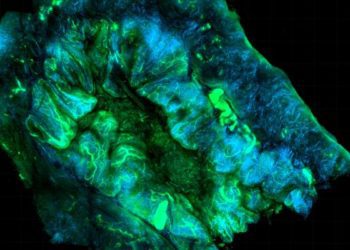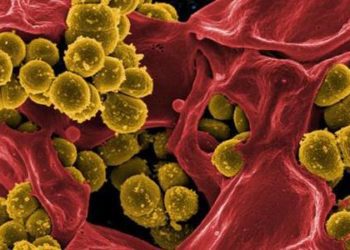Pediatric patients not receiving quality palliative care despite agreement between parents and caregivers on valued elements of care
Image: PD
Key study points:
1. Parents and clinicians agreed on most elements of palliative care guidelines established by National Consensus Project (NCP) .
2. The vast majority of elements (85%) thought to be valuable from the palliative guidelines were not readily accessible to patients and their families.
Primer: According to recent estimates, up to 50,000 children die every year in the United States and upto 500,000 are diagnosed with life-threatening or terminal disease including cancer and other chronic, progressive conditions like Duchenne muscular dystrophy, cystic fibrosis, and severe immunodeficiencies. The primary goal of palliative care is to improve and maintain the quality of life through continuous interdisciplinary care, from diagnosis to the end of the course of illness. Pediatric palliative care deserves special attention because the patient, as a child, is facing a life-threatening illness while still in growth and development. Furthermore, the parents/family become an even more important component in decision making and palliative care management.
In order to begin the process to set clear quality standards in pediatric palliative care, the National Consensus Project (NCP) and National Quality Forum released a set of clinical practice guidelines along with preferred practices for palliative care (see background reading). Because there is limited literature on the preferences of care among parents of pediatric patients and their pediatric oncology clinicians, the present study intended to both identify the elements of the NCP that parents and clinicians consider to be important and assess the accessibility of such elements.
Background reading:
1. Pediatric palliative care UpToDate. Accessed 29 November 2012.
2. Himelstein BP, Hilden JM, Boldt AM, et al: Pediatric palliative care N Engl J Med 2004; 350:1752-1762.
3. Wolfe J, Grier HE, Klar N, et al: Symptoms and suffering at the end of life in children with cancer.
N Engl J Med. 2000; 342:326-333.
4. Ferrell B, Paice J, Koczywas M: New standards and implications for improving the quality of supportive oncology practice. J Clin Oncol 26:3824-3831, 2008
This [survey-based] study: Questionnaires were distributed and completed by the parents of 75 children, who died of cancer between 2005 and 2011, and 48 pediatric oncology clinicians practicing at a single institution in Canada. Participants were asked to rate the importance of 20 core elements of palliative care delivery, whether those care elements were received, and how often they were received.
Of the 20 core elements of the guidelines, 15 were valued highly by both parents and clinicians (>60% of groups rating the element as important). The highest rated elements included involvement of a specialist palliative care team, access to 24/7 telephone advice from a palliative specialist, and parent control over the location of death. Parents rated receiving cancer-directed therapy during the last month of life (p= 0.01) and the involvement of a spiritual mentor (p=0.03) higher than did clinicians. Only 3 of the 15 valued elements were reported as routinely accessible more than 60% of the time.
In sum: While parents and clinicians agreed on the majority of important elements of palliative care, some notable differences included clinicians undervaluing the importance of a religious or spiritual mentor and parents placing more importance on receiving cancer-directed therapy during the last month of life. The study was limited by its survey-based design, and it should be noted that the response rate by parents was 54%, which rightfully raises the issue of selection bias. Nonetheless, despite its limitations, the study represents an important step in understanding important elements which can help guide the development of useful guidelines for pediatric palliative care. Future prospective, multicenter studies should focus on identifying those barriers to delivery and developing strategies to overcoming them. Perhaps most notably, only a small fraction of the identified elements that are valued by physicians and parents were actually deemed to be accessible to patients. While palliative care itself is in its early stages as a field, pediatric palliative care remains an interesting sub-field that provides novel challenges that are only now starting to be addressed.
Click to read the study in JCO
By [EP] and [RR]
© 2012 2minutemedicine.com. All rights reserved. No works may be reproduced without written consent from 2minutemedicine.com. Disclaimer: We present factual information directly from peer reviewed medical journals. No post should be construed as medical advice and is not intended as such by the authors or by 2minutemedicine.com. PLEASE SEE A HEALTHCARE PROVIDER IN YOUR AREA IF YOU SEEK MEDICAL ADVICE OF ANY SORT.






